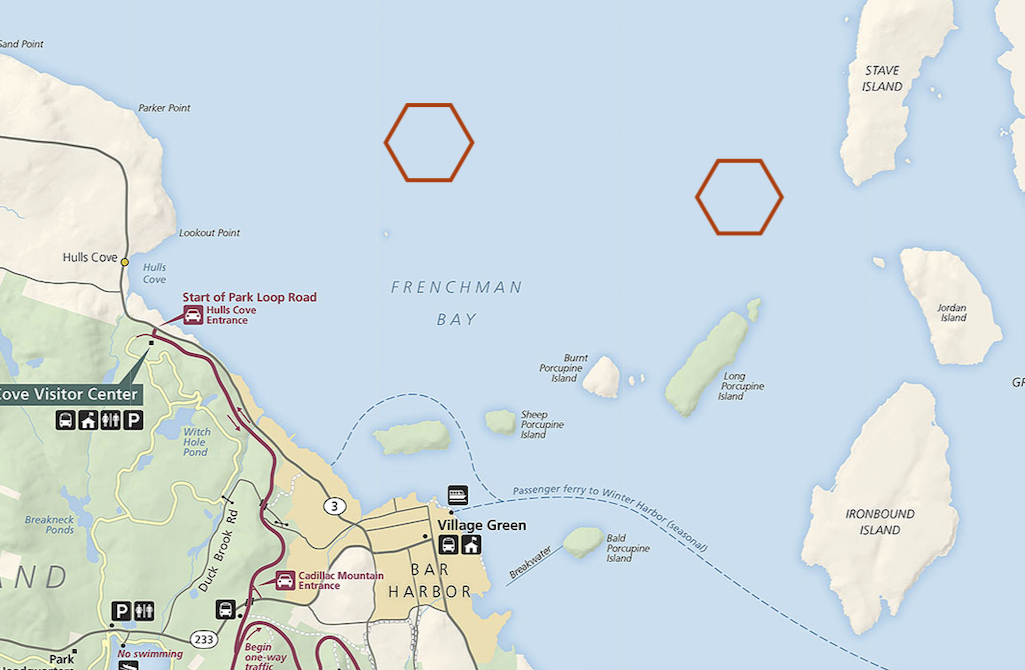
An aquaculture company that wanted to raise Atlantic salmon in Frenchman Bay has had its application rejected by the state of Maine. This graphic depicts the approximate location of where the pens were to be installed.
A proposal to raise Atlantic salmon in two 60-acre pens in Frenchman Bay off of Acadia National Park in Maine has been blocked by the state, where the Department of Marine Resources said the company behind the project failed to properly source its fish eggs.
In response to the Department of Marine Resources' decision, the Maine Department of Environmental Protection returned American Aquafarms’ application for a waste discharge license.
According to the Marine Resources department, the salmon pens were proposed to be located on "a 60.37 acre site located northwest of Long Porcupine Island in Frenchman Bay, and on a 60.32 acre site located north of Bald Rock in Frenchman Bay. Both proposals are located in the Town of Gouldsboro."
While the company, American Aquafarms, can still submit a new application, that would likely add extra years to the permitting process, according to Friends of Acadia.
“The decision by the Maine Department of Marine Resources to terminate the permit for American Aquafarms’ massive salmon farm in Frenchman Bay, was a small victory and we are delighted by the news,” said Stephanie Clement, interim president and conservation director at Friends of Acadia. “This is a serious setback for American Aquafarms, but it is likely not the end of the proposal. There is still a lot of work to do.”
Frenchman Bay United —a coalition of groups and individuals opposed to industrial size aquaculture in Frenchman Bay— urged American Aquafarms to give up on the project.
“It has been clear from the start that this project will create massive water and air pollution and will hurt the local economy through its adverse impacts on the lobster fishery, small-scale aquaculture operations already in the bay, and the many tourism and recreation jobs. All of these depend on a clean, unspoiled bay,” said Frenchman Bay United Treasurer Jeri Bowers, who is also president of Friends of Eastern Bay.



Add comment